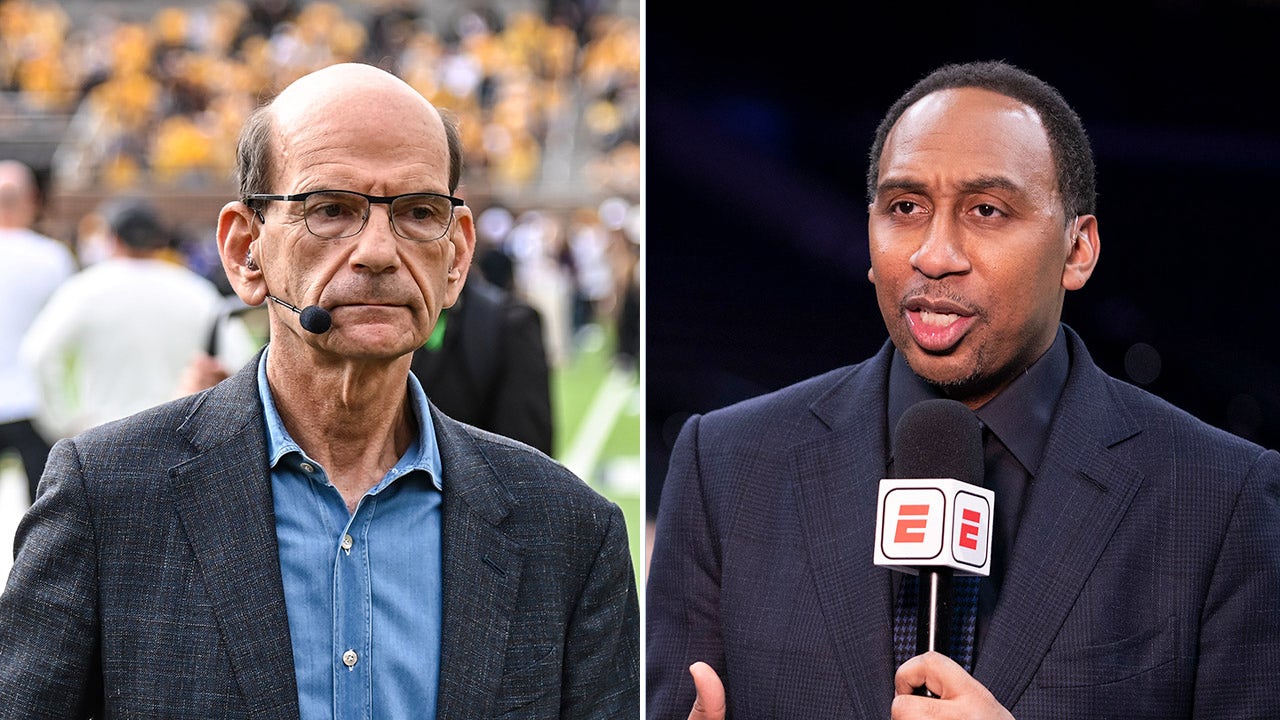Lane Kiffin’s future as the head coach of the Ole Miss Rebels football team has become a hot topic of discussion among sports commentators, especially as several college and NFL coaching vacancies have recently emerged. The debate gained notable attention during an episode of ESPN’s “First Take,” where hosts Stephen A. Smith, Paul Finebaum, and Christopher “Mad Dog” Russo debated whether Kiffin should remain with Ole Miss long term or pursue other opportunities.
During the discussion, Stephen A. Smith made a controversial remark that sparked significant backlash. Smith suggested that some Black players might be hesitant to commit to Ole Miss because of its location in Oxford, Mississippi. He stated bluntly, “the brothers ain’t trying to come to Oxford, Mississippi, for the most part, compared to Gainesville or Baton Rouge, Louisiana.” Smith’s comment implied that Oxford’s reputation and cultural environment might deter Black athletes, a claim that touched on the sensitive history and racial dynamics of the American South.
The comment did not sit well with Paul Finebaum, a longtime SEC analyst and radio host who is deeply familiar with college football in the South. Although Finebaum did not immediately respond on-air during the “First Take” segment, he addressed his concerns later on his own radio show. Finebaum took offense to Smith’s characterization, describing it as unfair and outdated. He argued that Oxford has changed dramatically over the years and that it was inaccurate to portray it as an unwelcoming place for Black athletes today.
Finebaum emphasized his point by reflecting on his personal experiences, noting that he has visited Oxford numerous times and has seen the progress the town has made. He criticized Smith for invoking “echoes of yesteryear, the ’60s,” which he found inappropriate and misleading. Finebaum also expressed confusion over Smith’s comparison of Oxford to Gainesville, Florida, and Baton Rouge, Louisiana, suggesting that Smith’s portrayal of those cities as “utopias” was equally baffling.
The discussion around race and sports continued when Smith brought up the recent firing of Chris Grier, the Black general manager of the Miami Dolphins. Smith implied that Grier’s dismissal carried racial implications, questioning why Grier was the first to be let go amid the team’s struggles. He expressed skepticism about the Dolphins’ decision, especially since head coach Mike McDaniel, who has African American ancestry through his grandmother, remained in his position.
Smith clarified that he was not defending Grier solely based on race but was highlighting a pattern he perceived in the treatment of Black executives in the NFL. He acknowledged the importance of representation and leadership opportunities for Black coaches and general managers, referencing his own decades-long advocacy on such issues. Nevertheless, Smith acknowledged the reality that performance matters and that jobs are often lost when results do not meet expectations.
Kiffin’s coaching career has been marked by a series of notable stops across both college football and the NFL. He took over as Ole Miss head coach in 2020 and has since been at the center of speculation regarding his next move. Prior to Ole Miss, Kiffin served as offensive coordinator at Alabama, and before that, he was head coach at USC, Florida Atlantic, and Tennessee. His experience and offensive expertise have made him an attractive candidate for various coaching vacancies.
Recent rumors have linked Kiffin to the New York Giants, where former Ole Miss quarterback Jaxson Dart is currently part of the team. Dart’s father reportedly reached out to Kiffin about the possibility of joining the Giants’ coaching staff. However, Kiffin reportedly declined, citing the cold weather in New York as a factor in his decision. This anecdote underscores the complexities coaches face when weighing career opportunities, including lifestyle considerations beyond the sport itself.
The conversation surrounding Kiffin’s future and the racial dynamics in college and professional football reflects broader discussions about diversity, inclusion, and the evolving cultural landscape of sports in America. It also highlights how sports media personalities like Stephen A. Smith and Paul Finebaum play influential roles in shaping public discourse around these issues.
As the football offseason progresses, all eyes will remain on Kiffin and Ole Miss to see whether he stays put or pursues a new challenge. Meanwhile, the debates sparked by the “First Take” segment continue to resonate, reminding fans and analysts alike that the intersection of race, sports, and culture remains a vital and sometimes contentious arena.
For ongoing updates and deeper analysis of this story and other sports news, follow Fox News Digital’s sports coverage

